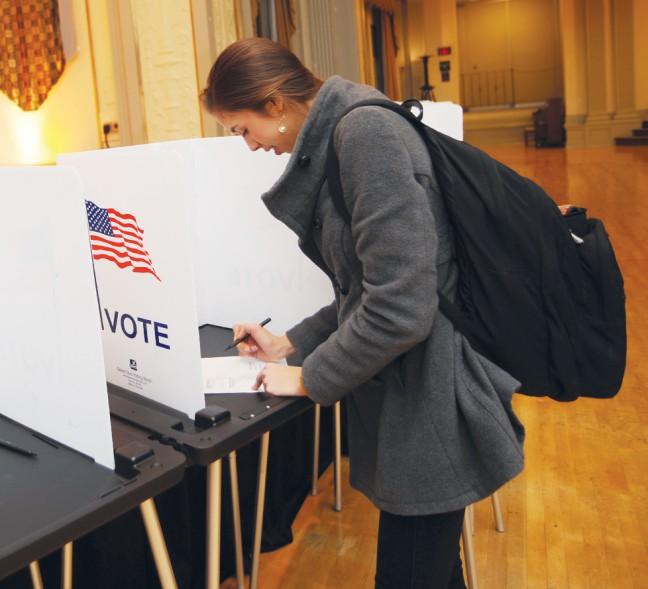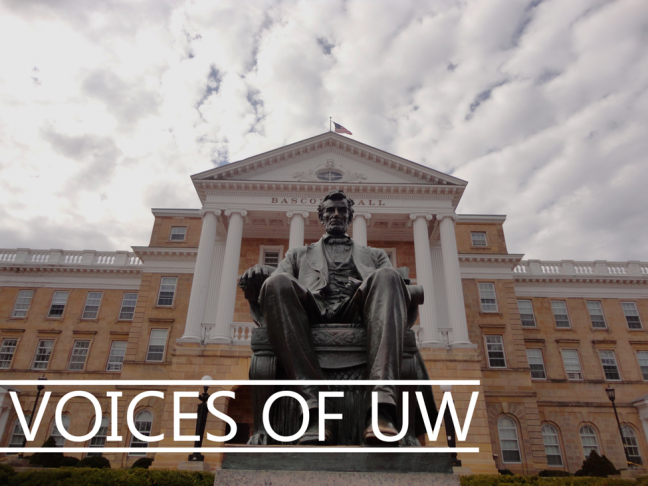In the March 20 guest column “Adidas proves need for collaboration,” Brad Barham and Heather Daniels’ joint faculty-staff response to students’ criticisms of Chancellor David Ward’s inaction in the Adidas contract proceedings ascribes to the Board of Regents “the ultimate authority to govern policy matters at the University of Wisconsin and other UW System campuses.” They conclude that the shared governance process through which students, faculty and staff are able to contribute to campus policy and decision making is simply advisory, making recommendations that the executive powers of the university system can choose to take or leave. This position presents far-reaching implications for student voice on UW System campuses. In a system in which those who exercise administrative power are not accountable to the university system’s direct stakeholders, how can students, faculty or staff rest assured that their policy concerns will be taken seriously?
Barham and Daniels suggest that “Ward reports only to the Board of Regents.” This notion undermines the very essence of shared governance, which is the legal cornerstone of cooperation and equity among faculty, staff, administration and students. It is explicitly laid out in Wisconsin statutes 36.09 (1) – (5). A philosophy of shared governance in which “all shared governance committee recommendations are only advisory to the chancellor” does not foster “cooperation and collaboration,” as illustrated by the heavily conflicting views on the proper response to the Adidas Group’s violation of its contract with UW.
Precedent and the stipulations of the contract are quite clear in proscribing a 90-day notice during which Adidas must remedy any violations of labor codes of conduct under threat of termination. However, Ward has failed to take administrative action on this issue, which has, in effect, let Adidas off the hook. Furthermore, he has failed to explicitly communicate to the Associated Students of Madison, the Faculty Senate or the Academic Staff Assembly why he has chosen to ignore the recommendations of students and the Labor Licensing Policy Committee on this issue.
More significantly, the “advisory” philosophy of shared governance that is the current modus operandi of administrative policymaking in the UW System may crucially contradict a statewide judicial precedent. In the Spoto v. the Board of Regents decision of 1995, Judge Northrup of the Circuit Court, District 14, ruled that the phrase “subject to [the responsibilities and powers of the board],” which appears in several of the statutes concerning the relations between administration and stakeholders, was not intended to subordinate faculty authority, but rather to indicate that “faculty authority is conditioned and affected by board authority.” This is a judicial resolution of the exact ambiguity that is currently being exploited by some members of the faculty, staff and administration to wrest power and voice from student representatives speaking out against the Adidas Group’s injustices.
The court ruled that “in any situation where power is genuinely shared, if the parties sharing authority cannot reach an agreement, an impasse will occur,” and that the statutes never explicitly grant the Regents (or any other body) exclusive or ultimate authority. The shared governance provisions protecting students’ interests are guaranteed by the exact same language as those relating to faculty interests, which are the focus of Spoto v. the Board of Regents. If the law is to prevail on our behalf as well as it has for the faculty, students must be afforded the same rights and “primary responsibility for the formulation and review of policies concerning student life, services and interests” as faculty and staff are afforded.
Attacks against students’ rightful role in policy and decision making on issues such as the Adidas contract are not surprising. In an era of unprecedented disinvestment in public education in Wisconsin and the rest of the nation, it seems commonplace for legitimate student concerns about issues of great financial magnitude to be met with authoritative power plays by administrators. However, while certain groups may benefit from a greater share of the governance pie, we as an institution become weaker as a result of this internal politicking. That is, we alienate ourselves from each other and our common interest in ensuring that the pie stops shrinking by orders of magnitude each year, as it has over the course of the past few decades.
What would happen if the administration, faculty and staff redirected their efforts to curtail student voice on issues like Adidas toward organizing a stronger response to the state’s massive budget cuts to the UW System? Then maybe Chancellor Ward wouldn’t have to worry about costly court battles with Adidas at the expense of his legal responsibilities to thousands of students who are picking up the tab to keep the dream of public higher education alive in Wisconsin.
Sundar Sharma ([email protected]) is the ASM shared governance director and a junior majoring in political science and sociology.











